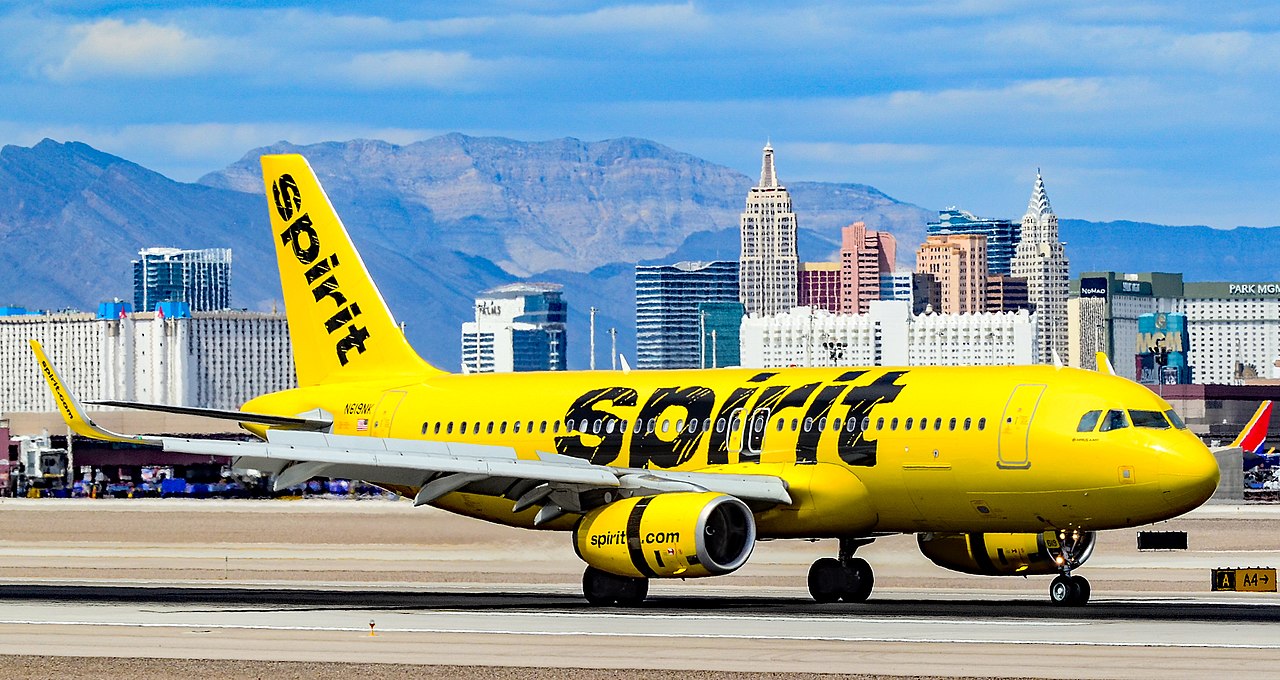Skift Take
Spirit CEO Ted Christie described speculation about Spirit’s ability to survive as “a misguided narrative.”
It’s been a rough few years for Spirit Airlines.
There hasn’t been much demand for the airline’s product. Pratt & Whitney geared turbofan engine issues have grounded several of its planes. It has had years of losses and a staggering $1.1 billion debt due in 2025. And perhaps, the biggest hit: A judge blocked its merger with JetBlue.
But Spirit CEO Ted Christie said the airline still has a viable path to survival during a call with analysts Thursday morning.
“This misguided narrative has been advanced by an assortment of pundits,” Christie said on the call. “However, back in the real world, we are focused on facts.”
Christie focused on Spirit’s efforts to strengthen its finances — the airline recently sold 25 aircraft and leased them back, allowing it to pay off $465 million in debt and net $419 million in cash.
“Liquidity is always king, and we have enhanced our levels to give us the necessary flexibility to successfully close with JetBlue or to pursue our stand-alone plans,” Christie said. “Above all else, margin repair is the key and we have been making network adjustments and cost decisions to recover our margin production.”
A Lifeline for Spirit
The merger with JetBlue would have been a lifeline for Spirit, which hasn’t been profitable since 2019. But a judge struck down the merger, arguing it would reduce competition in the industry and hurt consumers.
After the ruling, some Wall Street analysts speculated that Spirit would either need to find another buyer or risk filing for a Chapter 11 bankruptcy. JetBlue and Spirit recently filed a motion to appeal the ruling, and the First Circuit Court of Appeals will hear the case in June.
Christie said the initial decision against the merger was “ridiculous.”
“It’s beyond absurd for the government to claim a victory for the American consumer,” he said. “In fact, it’s ridiculous.”
The Spirit CEO read out lines from the decision that described the U.S. airline industry as an “oligopoly” that had become more consolidated through a series of mergers in the 2000s.
“Despite that explicit acknowledgment, the government continues to do nothing to address the anticompetitive structure of our industry,” Christie said. “Instead, they have just engaged in an expensive and long litigation process to block the merger of the sixth and seventh largest airlines that, when combined, would still be half the size of the fourth.”
Focusing on a Return to Profitability
Regardless of the outcome of the appeal, Spirit said it planned to return to a path to profitability as it appeared that demand for domestic travel was improving.
“Nonetheless, you can rest assured that the Spirit team is 100% clear and focused on the adjustments we are currently employing and will continue to make throughout 2024 to drive us back to cash flow generation and profitability,” Christie said.
The carrier said it plans to make some adjustments to its network, focusing on stronger markets like Fort Lauderdale and eliminating underperforming cities. The holiday season was also strong for Spirit, chief commercial officer Matthew Klein said.
But the executive cautioned that corporate travel was returning at a slower rate, creating too much capacity for leisure travel. Klein said Spirit would make bigger cuts to flight capacity during off-peak days from January to the first half of February.
Demand for ancillary products also improved throughout the fourth quarter, Klein said.
Spirit has looked for ways to cut costs, previously saying it identified $100 million in cost reductions.
As for engine issues, Spirit chief financial officer Scott Haralson said the carrier is working on an agreement to receive compensation from Pratt & Whitney, but nothing has been finalized yet. Spirit expects a compensation agreement to provide it a “significant source of liquidity over the next couple of years.”
For 2024, Spirit said it expects an average of 25 grounded Airbus A320neos due to the engine issues.
By the Numbers
Spirit reported an $184 million loss against $1.3 billion in revenue during the fourth quarter. For the first quarter, Spirit anticipates it will lose money, but bring in $1.25 billion to $1.28 billion in revenue.
Airlines Sector Stock Index Performance Year-to-Date
What am I looking at? The performance of airline sector stocks within the ST200. The index includes companies publicly traded across global markets including network carriers, low-cost carriers, and other related companies.
The Skift Travel 200 (ST200) combines the financial performance of nearly 200 travel companies worth more than a trillion dollars into a single number. See more airlines sector financial performance.
The Daily Newsletter
Our daily coverage of the global travel industry. Written by editors and analysts from across Skift’s brands.
Have a confidential tip for Skift? Get in touch
Tags: earnings, jetblue spirit merger, pratt & whitney, spirit airlines
